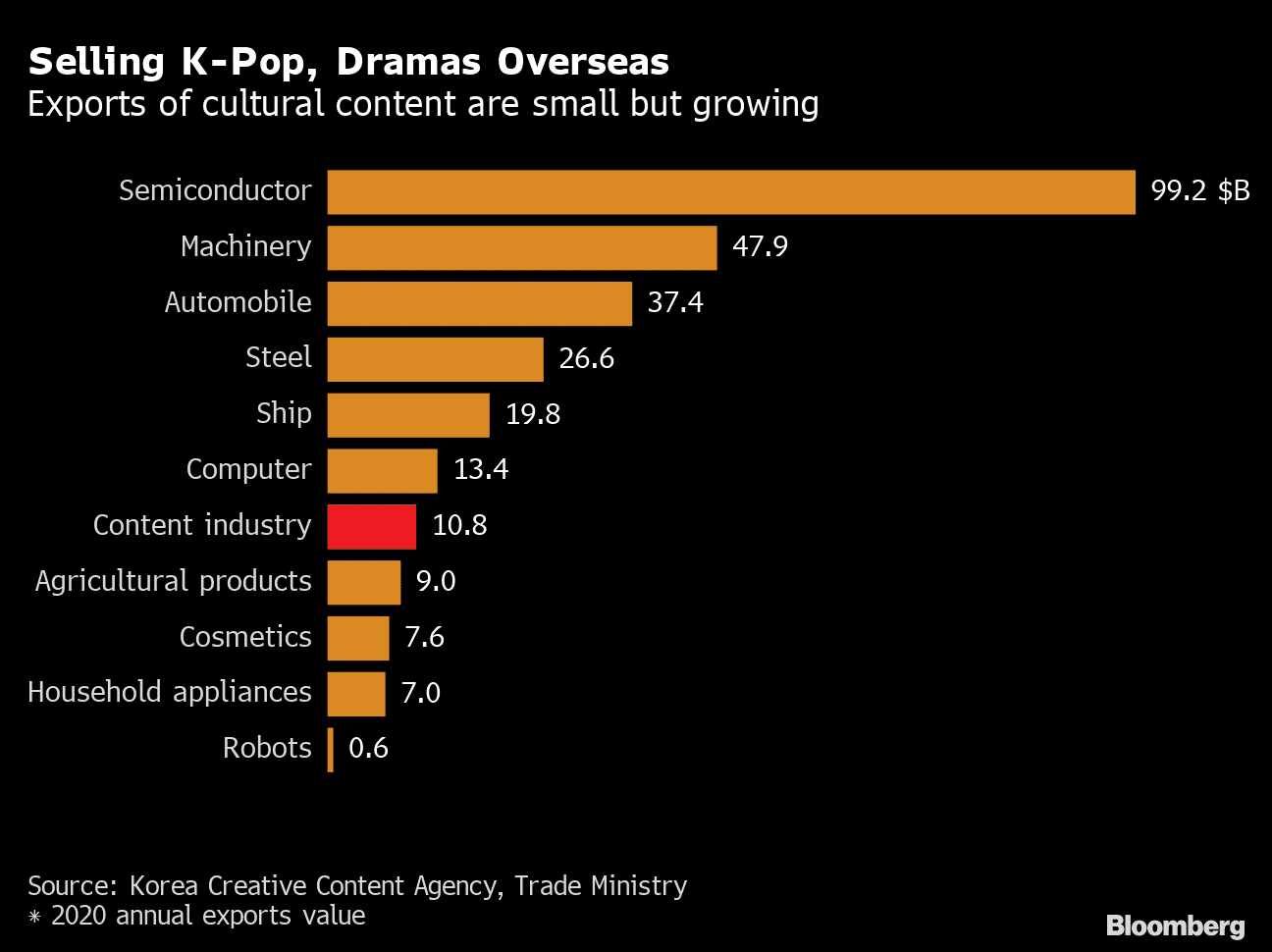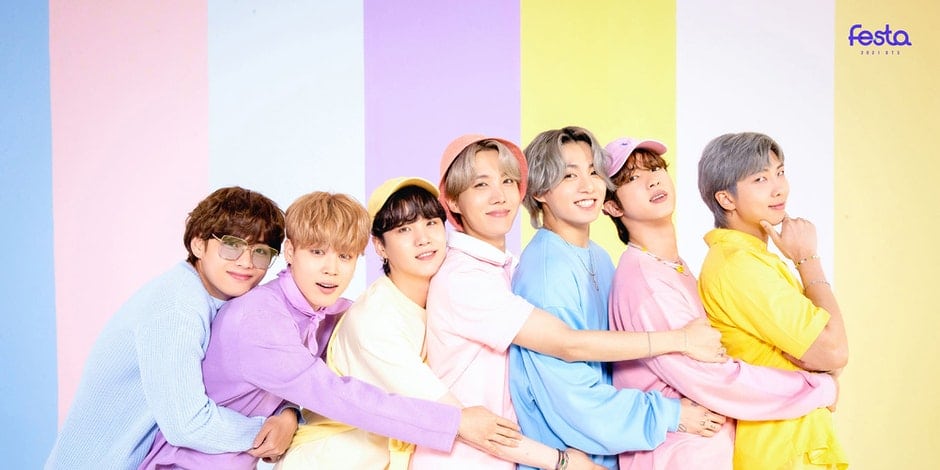The content industry is wide-ranging. From K-pop to K-drama to Netflix’s recent smash hit series Squid Game, Korea is conquering the entertainment industry.

Over the past decade this cultural movement has even earned its own term, ‘Hallyu’—a Chinese term directed translated to ‘Korean Wave.’ The Korean Wave refers to the growing popularity of South Korean culture and entertainment as a worldwide export. The term was coined in popularised in the early 2010’s.
K-pop is one of Korea’s most prominent entertainment success stories. Groups such as BTS and Blackpink have amassed worldwide acclaim and popularity. In 2020, BTS was one of only two artists to sell half a million copies of a newly-released album in the United States—the other artist was Taylor Swift.
Blackpink—the nation’s most popular girl group at the moment—has also made waves. The group has earned three Guinness World Records related to their music video for ‘How You Like That.’ These records were previously held by BTS.

“Over the last two years we’ve seen the world falling in love with incredible Korean content, made in Korea and watched by the world on Netflix,” said Netflix’s co-CEO and chief content officer Ted Sarandos.
The love affair with Korean entertainment is far from over, with the nation’s rise predicted to continue to soar as international content becomes more available than ever through streaming platforms.
According to the Media Consumer Survey 2021, Australian audiences are fond of their subscription services. On average Australians aged 25-38 subscribe to 2.6 television/movie streaming services. As these platforms continue their meteoric rise in relevancy, so too does the impact of the content in which they invest.
Korean entertainment is reaching wider and Australian audiences are spending more to access streaming platforms. With this in mind, Australia may be fortunate to be touched by Korea’s cultural reach for some time to come.






